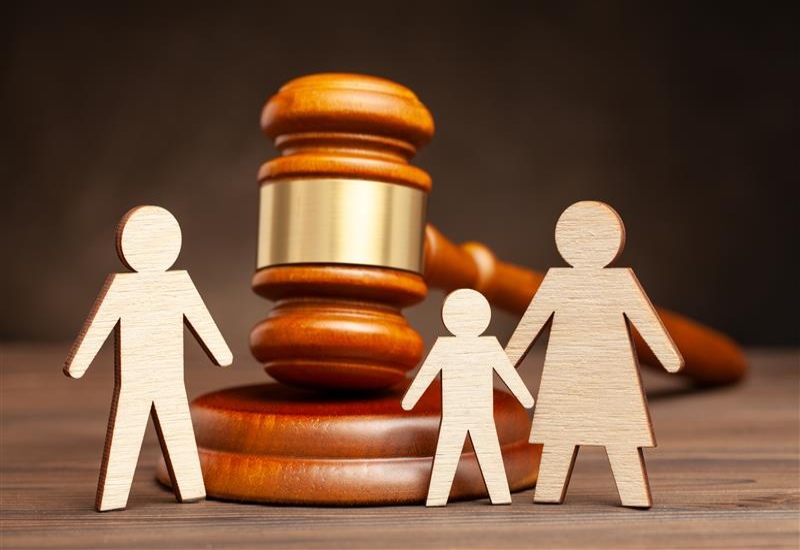Expert Legal Guidance on Children’s Issues In Palm Beach County, FL
Compassionate and Effective Legal Solutions for Children’s Issues
If you and your spouse or partner are going through a divorce or separation and have minor children, you will need to reach an agreement regarding child custody. Child custody is the physical and legal custody of minor children in a relationship, whether the spouses were legally married or cohabitating, and whether the children are biological or adopted. At Hudson Family Law, we have a team of experienced family law attorneys who can help you understand the factors that influence child custody in Palm Beach County, FL.

How to Get Custody of a Child in a Divorce Case
Many factors influence who gets custody of minor children in a divorce case or legal separation. The court will take various factors into account, including your financial situation, physical and emotional stability, employment history, home environment, and history with the court. While there are many ways that a child custody case can proceed, the best way to start is by:
- Establishing paternity of the child(ren) or obtaining official documentation of adoption
- Hiring an attorney to assist with negotiations with the other parent or their attorney
- Gathering evidence to support shared parental responsibility, your ability to raise the child, and your involvement in the child’s life, such as evidence of your financial situation, job, housing, and stability
- Getting references from family members, friends, and employers who can attest to the information gathered above
- File court paperwork requesting sole custody or shared legal and physical custody
What Are the Different Types of Child Custody?
There are different types of child custody agreements or shared parental responsibility agreements. The specifics of your custody agreement will depend on your circumstances. You and your spouse will negotiate through your attorneys to come to an agreement about child custody. If you cannot agree, a family court judge will intervene and consider the best interests of the child(ren). The different types of child custody are:
- Sole Physical Child Custody – Sole physical custody is when one parent will have the child in their custody 24/7/365.
- Joint Physical Child Custody – Joint physical custody is when both parents have the child in their custody at different times according to a predetermined schedule.
- Sole Legal Custody – Sole legal custody means that one parent has the sole right to make decisions about the child’s life.
- Joint Legal Custody – Joint legal custody means that both parents should have equal say in making decisions about the child.
Can a Child Choose Which Parent to Live With?
In Florida, a child can request which parent they want to live with. A child can tell the court their preference and explain their reasons. However, the court will ultimately make their decision based on the child’s best interests, even if it is not what the child prefers.
Factors Considered to Determine Child Custody
There are many factors that the court will consider when determining child custody in matters of divorce, legal separation, adoption, and paternity. Every case is unique, and there is no exhaustive list of factors that contribute to the custody decision. The most common factors that are considered in child custody cases are:
- The child’s needs, including their age, physical and mental health, development, and any special needs they have.
- The child’s relationship with each parent and with other siblings, children, or adults in each household.
- The parents’ abilities to care for the child, provide for the child, and provide a stable and safe home environment.
- The parents’ histories, including employment history, financial history, substance abuse history, and history with the court.
- The parent’s wishes and desires.
- The mental health of the parents and child, as well as that of other children and adults in both households.
- The geographic proximity of each parent’s residence to the child’s school, friends, medical care, etc.
- The preferences of the child.
Rights of Grandparents & Relatives in Child Custody
In some cases, a child’s grandparents can seek custody of a child. They must file a petition with the court outlining why they would be a better choice for custody of the child. In general, the court would only grant this petition if there were some extenuating circumstances that proved that one or both parents were unfit or incapable of retaining sole custody of the child, such as incarceration, abuse, neglect, or substance abuse. A grandparent can also file a petition to establish the right to visit and spend time with their grandchildren if one or both parents are preventing them from having a relationship with them.
When Do I Need a Child Custody Lawyer?
Understanding the details of a child custody case, knowing what documents to file, and what information to present to the court can be stressful and confusing. Hiring an experienced child custody lawyer can make the process less overwhelming. An attorney can help you work through the details of the custody agreement with your child’s best interests at heart. They can act as an impartial negotiator and ensure that any animosity or conflict between you and your spouse or partner does not influence the custody agreement. They can also advocate for your and your child’s rights and help you handle complex issues like child support.
Schedule a Consultation With Our Child Custody Attorneys
At Hudson Family Law, we have a team of experienced attorneys who can help you navigate complex child custody situations. We can act as a supportive advocate and help you understand the factors that influence child custody determinations and negotiate on your behalf for your child custody agreement. Call or contact us online to schedule a consultation with one of our child custody attorneys in Palm Beach County, FL.
